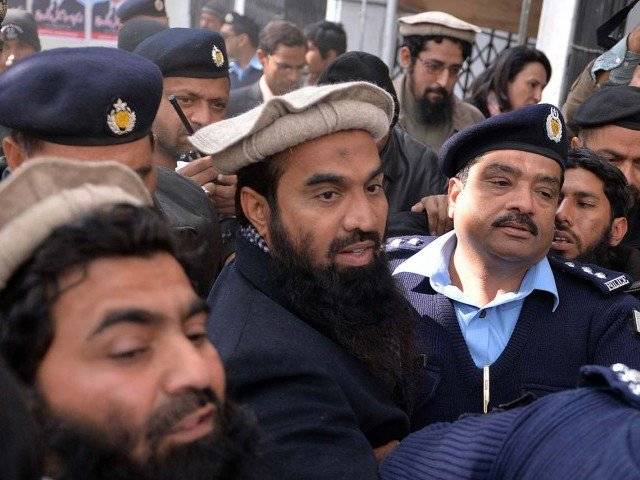The Interior Ministry is excellent at putting up a show of hard work and motivation – show only. As Zakiur Rehman Lakhvi walks free on bail, his detention under the Maintenance of Public Order Ordinance having been declared illegal, one thing is clear: the federal government of Pakistan has absolutely no desire to convict Lakhvi. Instead he is being kept in limbo, constantly investigated and tried, but never placed permanently behind bars; in an attempt to keep both sides of the religio-political spectrum at bay. In the process it is barrelling through countless legal conventions and rules of governmental responsibility.
The government is playing a dirty game; it hides behind legal court procedures, using every trick in the book to delay justice, and later assuring the people the trial is in progress – and letting courts take the flak. The responsibility to investigate, gather evidence and to build a case falls to the interior ministry, not the courts or the individual lawyers that are hired. The judge is there to judge the facts presented for him and the lawyer is there to present them to the court. Lakhvi was released on bail because the government did not present sufficient evidence, filing one extension plea after another to buy time. The kidnapping case registered against him on his initial release and the temporary detention under the Ordinance were both the same; stop gaps to bide time. The detention was always temporary, and liable to legal challenge, while in the kidnapping case the government failed to bring Lakhvi to the court premises several times, citing “security concerns”. There is blatant malfeasance in the government’s actions. It has enough evidence to get an arrest warrant issued, yet it doesn’t have enough to keep him under custody for the period of the trial - let alone get him convicted? It can indigenously develop drones, wage war against militants groups and can fund mega-economic projects, yet it can’t provide enough security to move one prisoner from one building to another? Even if security was a problem the solutions simple, yet not sought; the hearings could have been held in court, basic modern technology could have been used to conduct the trial. Even if we buy the claim that there is insufficient evidence to convict him for the 26/11 Mumbai attacks, there has to be enough evidence to convict him for lesser terrorism charges; he was arrested from a training camp of a banned militant organization, it must be remembered.
Now the government has chosen its side of the fence and has shown its hand. Lakhvi will now have the ability to regroup with other Lashker-e-Taiba member – a fact that is less disturbing once one considers that he was already allowed to freely do that in Adiala Jail, where he lived like a prince. The government tells us there is no distinction between good and bad terrorists – it lies.
Thursday, November 21, 2024
Keeping Lakhvi In Limbo

Spectacular airshow and military demos thrill crowds at IDEAS 2024
6:08 PM | November 21, 2024
PM Shehbaz awards Rs 5m to FBR officer for preventing major tax fraud
5:39 PM | November 21, 2024
ECP disqualifies Adil Bazai under Article 63A, declares NA-262 seat vacant
5:36 PM | November 21, 2024
Kazakh deputy FM meets Pakistan's industry minister for cooperation talks
4:16 PM | November 21, 2024
Imran Khan remanded in police custody for five days in New Town case
4:03 PM | November 21, 2024
-
Hunger crisis to increase in South Sudan, warns UN
-
Hunger crisis to increase in South Sudan, warns UN
-
Pakistan’s judiciary champions climate justice at COP29 in Baku
-
Punjab struggles with persistent smog as Met Office forecast rainfall
-
Punjab residents face escalating smog crisis as pollution levels soar across country
-
Qatar says Hamas 'no longer welcome' in Gulf state
Land of Vigilantes
November 21, 2024
United in Genocide
November 21, 2024
Finally Fighting Back
November 21, 2024
Digital Stagnation
November 20, 2024
Xi’s Red Lines
November 20, 2024
Independent Supreme Court
November 21, 2024
Fat Loss Fantasy
November 21, 2024
Tackle Corruption Within School Boards
November 20, 2024
To Be Opportunistic
November 20, 2024
Democratic Backsliding
November 20, 2024
ePaper - Nawaiwaqt
Nawaiwaqt Group | Copyright © 2024





